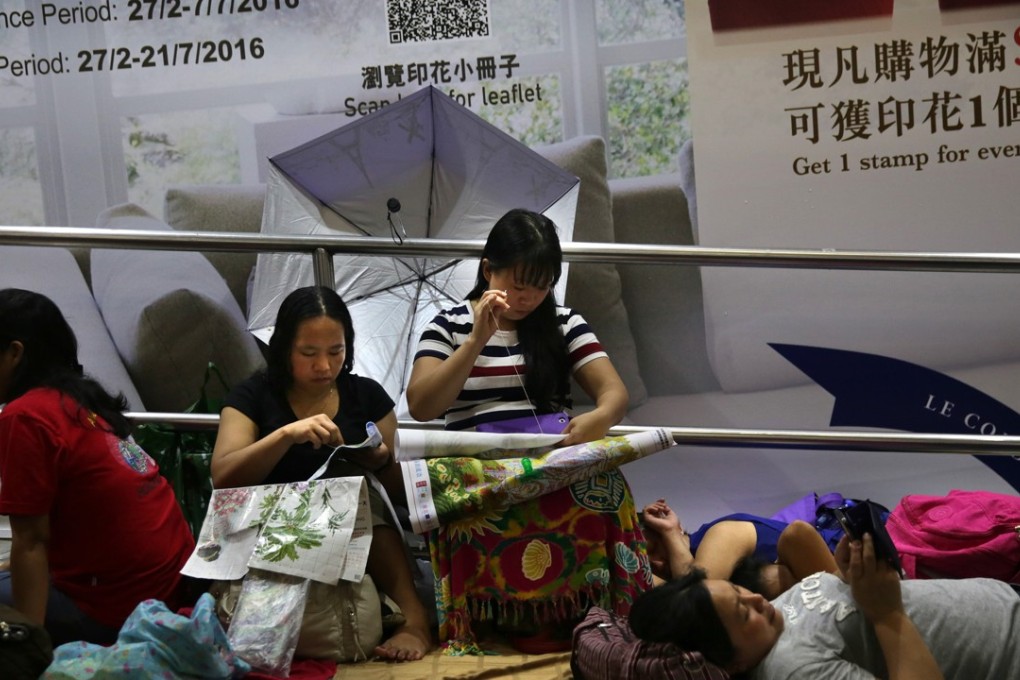Address the underlying issues behind exploitation of foreign domestic helpers
The question of living space in crowded Hong Kong and the illegal practices of employment agencies should be on the government’s agenda

Serious cases of exploitation of foreign domestic helpers investigated by police are relatively few and far between. This is no more than you should expect of a place that calls itself a “world-class city”. So why is Hong Kong repeatedly beset by serious allegations and disturbing anecdotal evidence about the exploitation and treatment of maids? This persistent disconnect does nothing for the city’s reputation or competitiveness in attracting foreign domestic labour.
Two issues have recently come into focus: employment agencies who trash the city’s reputation by gouging maids, and the provision by employers of substandard live-in accommodation. A voluntary code of practice for agencies has been in effect just four months. The government threatened legislation to make it mandatory within two years if it proved ineffective and it seems from an undercover investigation by a group of University of Hong Kong students that officials do need to act now. The investigation found that more than 70 per cent of employment agencies still charge excessive fees to domestic helpers, withhold their passports as leverage to make them pay debts, or engage in other illegal practices. The results indicate that the code of conduct is not really effective. Students working together with domestic helpers covered more than 100 recruitment agencies, with volunteers posing as workers or employers inquiring about job requirements. The government has no excuse for inaction. Concerns about the welfare of its citizens have already prompted the Indonesian consulate to issue its own code of conduct for agencies.
Separately, a survey of 3,000 Filipino and Indonesian helpers last year by the Mission for Migrant Workers found that many had to sleep in store rooms, on balconies, in kitchens and even toilets. Deplorable though this is, the circumstances are not so straightforward. Amid soaring property rents and prices, less well-off working couples living in cramped spaces with children or elderly parents may have no proper space for a helper, but need one to help care for dependents in the absence of support facilities. These cases cannot be addressed by law enforcement alone. Society also needs to address the social issues at the root of the problems of the so-called sandwich class, such as housing, support for the elderly in an ageing society, lack of child care and long working hours.
In the short term, the government could revisit the issue of allowing helpers to live out, which would address complaints of abusive treatment and invasion of privacy. Activists claim more maids do not come forward with complaints because of fear for their jobs. That said, all but a small minority of employers treat them well and Hong Kong gives them better legal protection than other Asian countries.